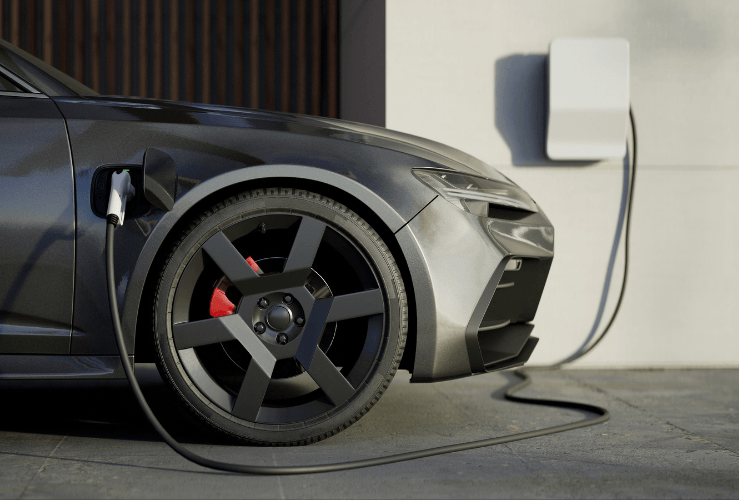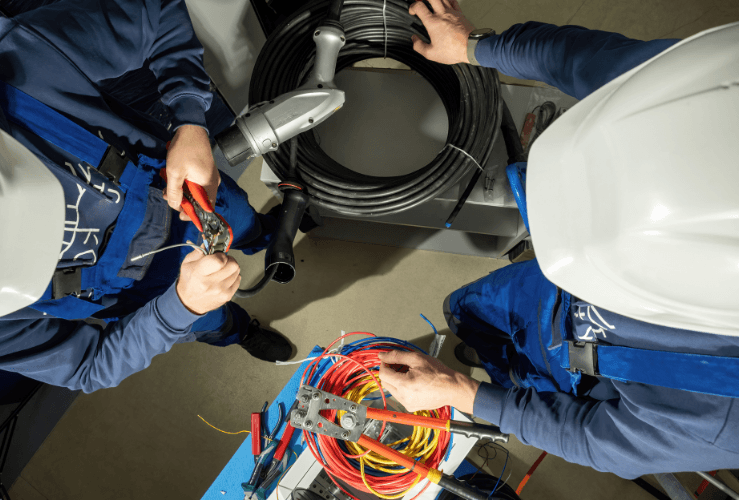If you've recently bought your first EV, or you’re about to, you'll probably be thinking about getting a home charger installed.
Charging your EV at home will be considerably cheaper than using paid public chargers - especially if you charge overnight when electricity tariffs are lower.
The logic of installing a home charger is reflected in a recent What Car? study, which found 93.6% of existing EV drivers can recharge their vehicle at home overnight.
Indeed, the same study found only 17.7% would be comfortable owning an EV without a home charger - down from 25.3% on the previous year's report.
Why get a home EV charger?
- The most convenient way to charge
- Cheaper than paid public chargers
- Safer - your EV is at less risk of theft or vandalism
- Potentially boost your property's value
- The possibility of making money by sharing the charge point with other EV owners through the P2P system
- Faster (and safer) charging compared to a standard 3-pin plug system

How do I get an EV charger installed?
Getting a home EV charger installed is fairly straightforward. The installation itself should take 2-3 hours.
But before you start the process, consider the following:
1. Where you'll place the charger and where you'll park your EV?
Most chargers will require you to have dedicated off-street parking - for reasons of accessibility and security. Needless to say, the distance between the parking space and the charger cannot be further than the length of the cable (7.5m is the norm).
You may also need to think about the location of your EV's charging socket in relation to the cable/charger.
Additionally, the distance between the charging unit and your homes' power supply may be a consideration.
2. Do you want a smart charger? - this will require a stable Wi-Fi connection
'Smart chargers' require a stable internet connection in order to make smart features available. However, if the Wi-Fi goes down, they will still charge your EV, just without any smart features.
Smart features might include: ‘desired charge level’ (the battery level you want your EV charged to) and ‘charge-by time’: (desired time you want the EV charged by).
3. The type of charger you want
You'll need to think about the maximum charging rate of your charger/EV.
If your charger has a maximum charge rate of 7kW, but your EV is capable of 11kW, you will only be able to charge at 7kW. Equally, if your EV is only 7kW-capable, it won’t charge any faster than this, even if the charger is, say, 11kW or 22kW rated.
NB: If you want to charge faster than 7kW, you'll probably need to upgrade your home's power supply to three-phase (most UK homes are only single-phase). This work can be expensive.
You can also choose between a tethered charger (comes with cable for convenience) and a universal charger.

4. Cost of installation (are you eligible for an EV home chargepoint grant?)
It costs around £350 to install a home charge point. However, in some cases your home may require extra work for installation to be possible. Ensure you get a quote for this first.
You may also be eligible for a grant if you are an owner/occupier of a flat or a renter of a residential property with off-street parking. There's a similar grant for landlords.
Both of these grants cover up to 75% of the cost (maximum £350).
Unfortunately, grants are no longer available for owners of houses.
5. Which installation firm to choose?
All EV charge point installers should adhere to The Electric Vehicle Consumer Code for Home Charge Points (EVCC) and comply with the Electric Vehicles (Smart Charge Points) Regulations 2021.
When selecting a provider, think about:
- Do they offer chargers with multiple charging rates?
- Are their charge points safe?
- Do their units have smart features?
- Will your EV work with their chargers?
- Does the price include standard installation?
Registering your charger with your Distribution Network Operator (DNO)
You'll need to register your energy device with the firm that brings electricity into your home. However, most installers will do this on your behalf.




